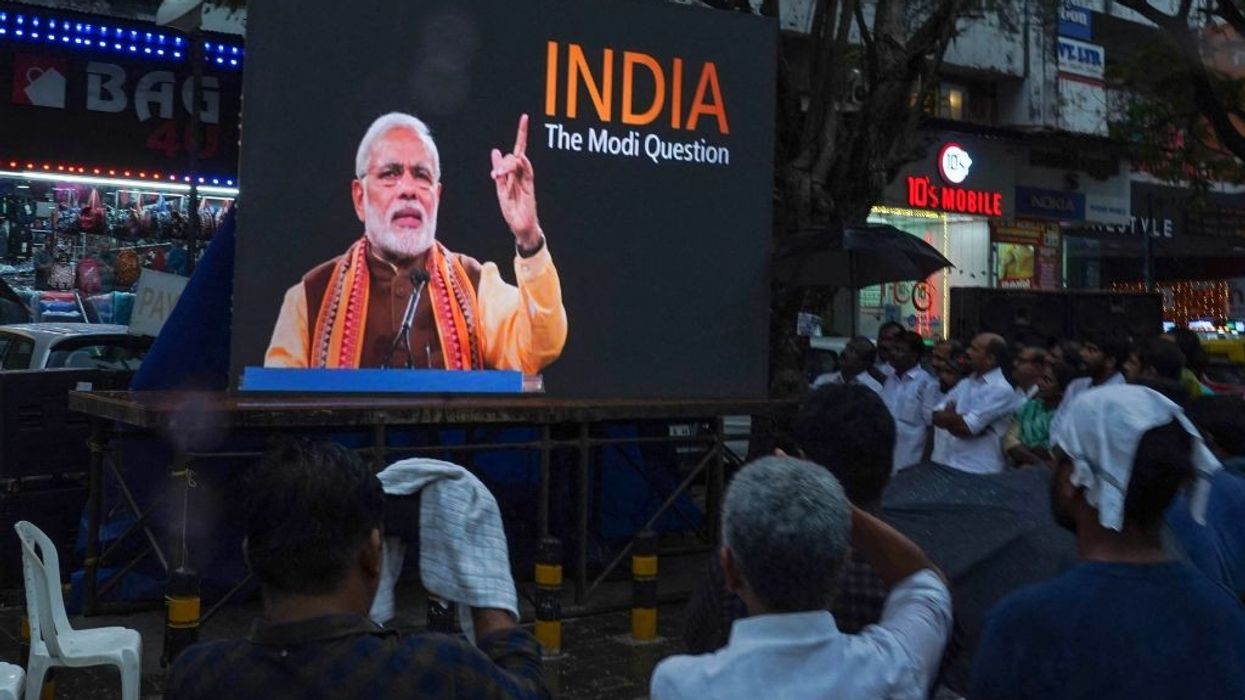The UK is “closely monitoring” the situation following the Income Tax surveys at the BBC offices in India, British government sources said.
The Income Tax department conducted survey operations at the BBC’s offices in Delhi and Mumbai on Tuesday with the officials describing the action as part of an investigation into alleged tax evasion.
Reacting to the Indian IT department’s action, the UK-based British public broadcaster said that it was “fully cooperating” with the authorities and hoped that the situation will be resolved “as soon as possible”.
While there has been no official statement from the UK government related to the action, British sources said they are “closely monitoring” reports of tax surveys conducted at the offices of the BBC in India.
In New Delhi, officials said the survey was being carried out to investigate issues related to international taxation and transfer pricing of BBC subsidiary companies, and alleged that the BBC had been served with notices in the past but was “defiant and non-compliant” and had significantly diverted its profits.
The IT action against the BBC comes weeks after the broadcaster aired a controversial two-part documentary -India: The Modi Question- on Prime Minister Narendra Modi and 2002 Gujarat riots.
“The Income Tax Authorities are currently at the BBC offices in New Delhi and Mumbai and we are fully cooperating,” a BBC spokesperson said in a statement.
“We hope to have this situation resolved as soon as possible,” the spokesperson said.
The BBC did not give further details of what has been described as “surveys” by the Income Tax (IT) department, which reportedly involved local BBC staff being prevented from leaving or entering the office premises and their mobile phones and other gadgets being seized.
Meanwhile, there was shock in the UK as news of the action unfolded early on Tuesday (14) morning and a broad consensus has been that the action was linked to the controversial BBC documentary aired in the UK last month.
“Everyone’s shocked and no one is fooled that today’s tax survey, as it’s being called, is a retaliation to the recent BBC documentary The Modi Question,” said Dr Mukulika Banerjee, a leading author and academic at the London School of Economics (LSE).
“The BBC is an independent public broadcaster so if it puts out a documentary, it is not acting at the behest of the British government. In fact, BBC journalists routinely grill the British PM and all elected officials holding them accountable for their actions. The word ‘independent’ means just that,” she said.
“Finally, the Indian government has appointed India as the ‘Mother of Democracy’ during its year of the G20 Presidency and plastered posters across every inch of the country proclaiming that. It should know then that one of the basic principles of being a democracy is to recognise that press freedom is an essential central pillar of a functioning democracy. They really need to understand that this is what press freedom looks like. And stop its shameful harassment of the BBC in Delhi and Mumbai,” she added.
The South Asia Solidarity Group, a human rights organisation based in the UK, dubbed it a “blatantly vindictive move”.
“In the wake of the government’s ban on sharing extracts or screening the documentary, this raid makes it clear that the Modi government will attack all those who criticise Narendra Modi, the BJP and those close to them,” said Mukti Shah, spokesperson for the group.
Meanwhile, there were others such as the Global Hindu Federation which expressed support for the action.
“As a ‘coloniser collaborator’ the BBC has been living rent free in our heads, and no doubt financial irregularities abound in their ongoing occupation of the India media space,” said the federation’s chair Satish Sharma.
The Indian government has branded the two-part series a “propaganda piece”, designed to push a particular “discredited narrative”.
“The bias, lack of objectivity and continuing colonial mindset is blatantly visible,” the Ministry of External Affairs (MEA) said at the time it was aired in the UK last month.
The documentary also triggered coordinated Indian diaspora protests at BBC offices across different UK cities at the end of last month.
The UK government responded in the House of Commons to the protests by insisting the BBC as a media organisation was “independent in its outlet” and reiterating its commitment to enhance ties with India.
“We recognise how this portrayal of the Indian government has played out in India. I made it clear that the BBC is independent in its output, that the UK regards India as an incredibly important international partner and that we will be investing heavily in that relationship in the coming decades,” UK foreign secretary James Cleverly said earlier this month.
His remarks were later echoed by British prime minister Rishi Sunak’s official spokesperson in Downing Street: “The BBC is independent in its output and we would stress that we continue to regard India as an incredibly important international partner.
“We will be investing heavily in our relationship with India over the coming decades and we’re confident it will only go from strength to strength.”
(PTI)





